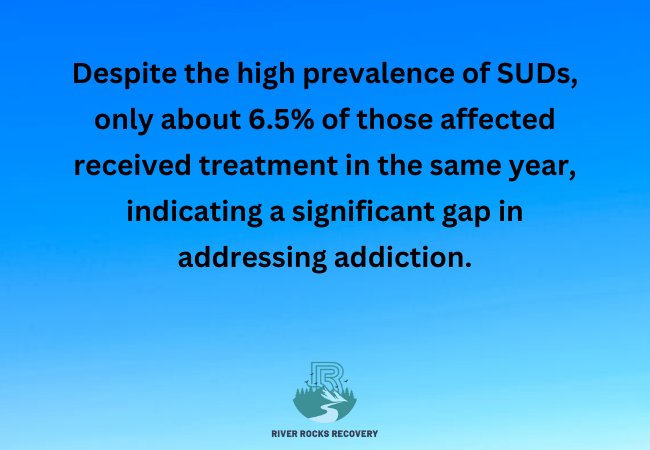When someone struggles with drug addiction, deciding to seek help is a critical step toward recovery. However, many people are unclear about the difference between detox and rehab and which one they need. Detox and rehab serve different purposes, but both are essential components of addiction treatment.
- Detox focuses on eliminating drugs from the body and managing withdrawal symptoms.
- Rehab addresses the psychological, behavioral, and emotional aspects of addiction to prevent relapse.
At River Rocks Recovery, we offer comprehensive addiction treatment in Ohio, including detox services, inpatient and outpatient rehab, and specialized programs for opioid and meth addiction.
In This Guide, We Will Cover:
- The key differences between detox and rehab
- Why detox is necessary before rehab
- The role of therapy and long-term recovery planning in rehab
- How to determine whether you need detox, rehab, or both
- What happens after rehab: continuing care and relapse prevention
If you or a loved one is struggling with drug addiction, understanding the full treatment process will help you make an informed decision about recovery.
What is Detox? The First Step in Drug Treatment
Detoxification, commonly known as detox, is the process of removing harmful substances from the body. When someone stops using drugs, their body experiences withdrawal symptoms, which can be uncomfortable or even life-threatening.
Goals of Detox:
- Safely eliminate drugs from the system
- Manage withdrawal symptoms to prevent medical complications
- Stabilize the individual physically and mentally before rehab
- Prepare for long-term addiction treatment
Common Withdrawal Symptoms During Detox:
Depending on the drug, withdrawal symptoms can range from mild to severe and include:
- Nausea, vomiting, or diarrhea
- Severe sweating or chills
- Intense drug cravings
- Anxiety, depression, or mood swings
- Tremors or seizures (common with alcohol and benzodiazepine withdrawal)
How Detox Works at River Rocks Recovery
- Medical Assessment: Doctors evaluate substance use history, physical health, and mental health conditions.
- Medication-Assisted Treatment (MAT): Medications may be used to reduce cravings and withdrawal symptoms.
- 24/7 Monitoring: Medical professionals provide continuous supervision to ensure a safe detox process.
- Emotional and Psychological Support: Therapists and counselors help individuals cope with early recovery challenges.
- Transition to Rehab: Detox is not a standalone treatment—patients must continue into rehab to achieve long-term recovery.
How Long Does Detox Last?
The duration of detox depends on the drug used, the individual’s overall health, and the severity of addiction.
| Drug Type | Detox Duration |
|---|---|
| Opioids (Heroin, Fentanyl, Painkillers) | 5-10 days |
| Methamphetamine | 7-14 days |
| Alcohol | 5-7 days |
| Benzodiazepines (Xanax, Valium) | 10-14 days |
| Cocaine | 3-7 days |
What is Rehab? The Next Step After Detox
While detox helps the body get rid of drugs, rehab helps the mind heal from addiction. Drug rehab programs provide structured therapy, emotional support, and relapse prevention strategies to ensure long-term sobriety.
Goals of Rehab:
- Address the underlying causes of addiction
- Teach coping skills to avoid relapse
- Provide therapy for emotional and mental health issues
- Help individuals rebuild relationships and create a healthy lifestyle
Types of Rehab Programs at River Rocks Recovery
1. Inpatient Rehab (Residential Treatment)
- Patients live at the facility full-time for immersive treatment.
- Best for individuals with severe addiction or those needing a drug-free environment.
- Includes individual therapy, group therapy, relapse prevention, and holistic healing approaches.
2. Partial Hospitalization Program (PHP) in Ohio
- Offers structured, intensive therapy during the day while allowing individuals to return home at night.
- Ideal for those transitioning from inpatient rehab or who need more support than outpatient treatment.
3. Intensive Outpatient Program (IOP) in Ohio
- Flexible treatment option for individuals who need structured care but have work or family commitments.
- Includes group therapy, individual therapy, and relapse prevention planning.
4. Outpatient Program (OP) in Ohio
- Weekly therapy sessions for long-term support and relapse prevention.
- Ideal for individuals who have completed higher levels of rehab and need continued care.
Detox vs. Rehab – Understanding the Key Differences
| Factor | Detox | Rehab |
|---|---|---|
| Purpose | Helps the body remove drugs and manage withdrawal symptoms. | Provides therapy to address emotional and behavioral aspects of addiction. |
| Medical Supervision | 24/7 monitoring and medication-assisted treatment. | Ongoing therapy and counseling with medical support if needed. |
| Treatment Duration | 5-14 days, depending on the substance. | 30-90 days or longer. |
| Best For | Individuals physically dependent on drugs who need medical stabilization. | Individuals ready to address addiction’s psychological and emotional components. |
| Outcome | Patient is physically stabilized and ready for further treatment. | Patient develops long-term coping strategies and support systems. |
What Happens After Rehab? Continuing Care & Relapse Prevention
Completing detox and rehab is a major achievement, but staying sober requires long-term commitment. At River Rocks Recovery, we provide aftercare programs to help individuals maintain their sobriety and transition into a healthy lifestyle.
1. Sober Living Programs
- Provides a structured, drug-free environment after rehab.
- Ideal for individuals who need additional time to adjust before returning home.
2. Relapse Prevention Counseling
- Teaches how to identify triggers and manage cravings.
- Helps individuals develop emergency relapse prevention plans.
3. 12-Step & Peer Support Groups
- Ongoing support through Alcoholics Anonymous (AA), Narcotics Anonymous (NA), or SMART Recovery.
- Builds a network of sober peers for encouragement and accountability.
Choosing the Right Treatment Path for You
The best treatment approach depends on your individual situation. Ask yourself the following:
- Do I experience withdrawal symptoms when I stop using drugs? → You likely need detox first.
- Have I tried to quit before but relapsed? → Inpatient or outpatient rehab can help build long-term sobriety.
- Do I struggle with mental health issues alongside addiction? → A dual diagnosis program (offered in rehab) is essential.
If you’re unsure which treatment program is right for you, River Rocks Recovery can help you determine the best path.
How River Rocks Recovery Can Help
At River Rocks Recovery, we offer personalized treatment programs to help individuals successfully detox and transition into rehab for long-term recovery. Our services include:
- Medical Detox Services for safe withdrawal management.
- Inpatient and Outpatient Rehab to address psychological healing.
- Opiate and Meth Rehab Programs for specialized addiction treatment.
- Partial Hospitalization & Intensive Outpatient Programs for flexible recovery options.
Conclusion
Understanding the difference between detox and rehab is crucial for anyone seeking recovery from drug addiction. Detox is the first step, helping the body safely eliminate substances and manage withdrawal symptoms. However, detox alone does not address the psychological, emotional, and behavioral aspects of addiction—this is where rehab becomes essential.
Rehab provides structured therapy, relapse prevention strategies, and coping mechanisms to help individuals maintain long-term sobriety. Without rehab, individuals are at a high risk of relapse, as the underlying causes of addiction remain unaddressed.
If you or a loved one is struggling with addiction, don’t wait to get help. The sooner you seek treatment, the greater the chances of achieving lifelong sobriety. Call River Rocks Recovery at 888.905.6281 today to speak with a treatment specialist. Recovery is possible—take the first step today and build a healthier future.
FAQ About Detox and Rehab
What is the main difference between detox and rehab?
Detox focuses on removing drugs from the body and managing withdrawal symptoms, while rehab addresses the psychological, emotional, and behavioral aspects of addiction through therapy and relapse prevention strategies. Detox is the first step, but rehab is necessary for long-term recovery.
Can I go to detox without going to rehab?
Yes, but detox alone is not enough for long-term sobriety. Without rehab, individuals are at high risk of relapse because detox does not address the underlying causes of addiction. Completing rehab after detox significantly improves the chances of lasting recovery.
How long does detox take?
The length of detox depends on the type of drug, frequency of use, and individual health. On average:
- Opioid Detox: 5-10 days
- Meth Detox: 7-14 days
- Alcohol Detox: 5-7 days
- Benzodiazepine Detox: 10-14 days
How long does rehab last?
Rehab programs vary based on individual needs. Typical durations include:
- Inpatient Rehab: 30-90 days
- Partial Hospitalization Program (PHP): 2-4 weeks
- Intensive Outpatient Program (IOP): 8-12 weeks
- Outpatient Program (OP): Several months to a year or longer
Do I need inpatient or outpatient rehab after detox?
- Inpatient rehab is best for individuals with severe addiction, co-occurring mental health disorders, or previous relapses.
- Outpatient rehab is suitable for those with mild to moderate addiction and strong support at home.
What happens after rehab?
After rehab, ongoing relapse prevention and aftercare are critical. This includes:
- Sober living programs for structured, drug-free housing.
- Relapse prevention counseling to build coping skills.
- Support groups (AA, NA, SMART Recovery) for continued peer support.





























